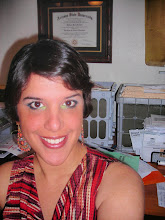
I am not trying to be a snob. I am unfolding a sequence of collected experiences to illuminate a certain conclusion I have been drawn to through my own ponderings. Here are the events, and they are unrelated to each other:
The Bad -
- An acquaintance of mine has a limited scope of how she views and processes things. She doesn't have enough foresight to think of things she is trying to achieve, and because of it, she has lost out on job opportunities that would have provided for a higher income, and for a better quality of life. Unfortunately, she doesn't see her culpability in the matter. She is blissfully ignorant about her station, and how its ceiling is suffocatingly small.
- English teachers (ashamedly enough), newsmen and women, and billboards across the state, (and sadly, I'm sure, across the nation), are promoting illiteracy, and the destruction of the English language. I think with gloomy amazement about how many people will think that bad grammar and usage is the correct, standard way of speaking.
- Interest in reading is at a depressingly low point for teenagers. Granted, there are many things to have an interest in, but few interests spread the spark and rabidity of ideas the way that reading does so quickly.
The Good -
- An old dog learning new tricks: I am always amazed about how talented some of my students are. A couple I know thrive, flourish, and perform with their own musical groups, several are outstanding athletes; for someone whose athletic ability is inversely proportional to her "book smarts," dumb, speechless admiration is the only thing I can use to describe how impressed I was with this grace on the field and court. Some are so talented, as a matter of fact, that they have scholarships with "free rides" to renowned universities. Just think where their natural skill will take them. Just think about the natural skill of universities, that can open their minds to more than just the ball, but the book, as well.
- The little piece of paper that can mean so much, and no, it's not the one that puts you in a church or Justice of the Peace. A degree, Silly! Obviously, it doesn't always guarantee a person to be wiser, but if a person is wise, the person will make a correlation between what she knows, and how much money is in the wallet because of what's in her brain. It never fails to astound me in the most profound way that I've made a healthy livliehood just because I know and love English (I think to love equals to know). I've worked my degrees as soon as I've earned them, and it's amazing to realize that one can put a price on knowledge (a lucrative price, as well).
- On a grand scale: I just received an e-mail about an organization you can find at http://www.freerice.com/. Based on your skill with vocabulary, you donate, through your knowledge of vocabulary, grains of rice. The highest level you can achieve is 60, but many people don't get above 50 (I earned a 41, and donated 1,000 grains of rice). Literally, you can help save lives by what you know. Miraculous.
I guess this blog has to do with my amazement based on the knowledge one has, and where it can take him, or the people affected by his life. There are no shortage of corny maxims around teachers, and how they affect lives, but when you stop to think about it, it doesn't stop at teachers. Musicians, artists, the "movers and shakers" of this world, the people who stop to think about things in a different way, and because of it, affect something else positively. If people started looking at what they didn't know, maybe it would motivate them to find out how it could help them. The other "H" word that does much more good than the other.

